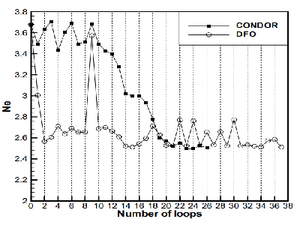Ö. Uğur, K. Yapıcı, Y. Uludağ and B. Karasözen, Computer Simulation and Optimization of Stirrer Hydrodynamics at High Reynolds Numbers, in: Computational Fluid Dynamics: Theory, Analysis and Applications, Alyssa D. Murphy (editor), Nova Publishers, pp. 493-510, 2013.
ISBN: 978-1-61209-276-8
Abstract
Computational fluid dynamics (CFD) is a powerful tool for solving problems associated with flow, mixing, heat and mass transfer and chemical reaction. Hence they are useful alternatives to experimental techniques that are expensive and time consuming in the simulation of mixing processes. In this chapter, computational analysis of turbulent flow field in a mixing tank and a numerical approach for the optimization of stirrer configuration parameters are presented. Velocity field and power requirement are obtained using the FASTEST, a CFD package, which employs a fully conservative finite volume method for the solution of the Navier-Stokes equations. The inheritably time-dependent geometry of stirred vessel is simulated by clicking mesh method.
In the simulation of the turbulent flow field in a mixing tank with six bladed Rushton turbine, the effects of impeller clearance and disc thickness on the power number are determined and it is found that the power number decreases with decreasing clearance and increasing disc thickness. The results are comparable with those of well established measurement techniques in terms of time-averaged velocity field, turbulent kinetic energy, dissipation rate, and power number.
The methodology for the optimization of stirrer configuration is based on a flow solver FASTEST, and a mathematical optimization tool, which are integrated into an automated procedure. Two trust region based derivative free optimization algorithms, the DFO and CONDOR are considered. Both are designed to minimize smooth functions whose evaluations are considered to be expensive and whose derivatives are not available or not desirable to approximate. An exemplary application for a standard stirrer configuration illustrates the functionality and the properties of the proposed methods.
Keywords: Navier-Stokes equations, computational fluid dynamics, stirrer, agitation, hydrodynamics, simulation, multivariate interpolation, derivative free optimization
